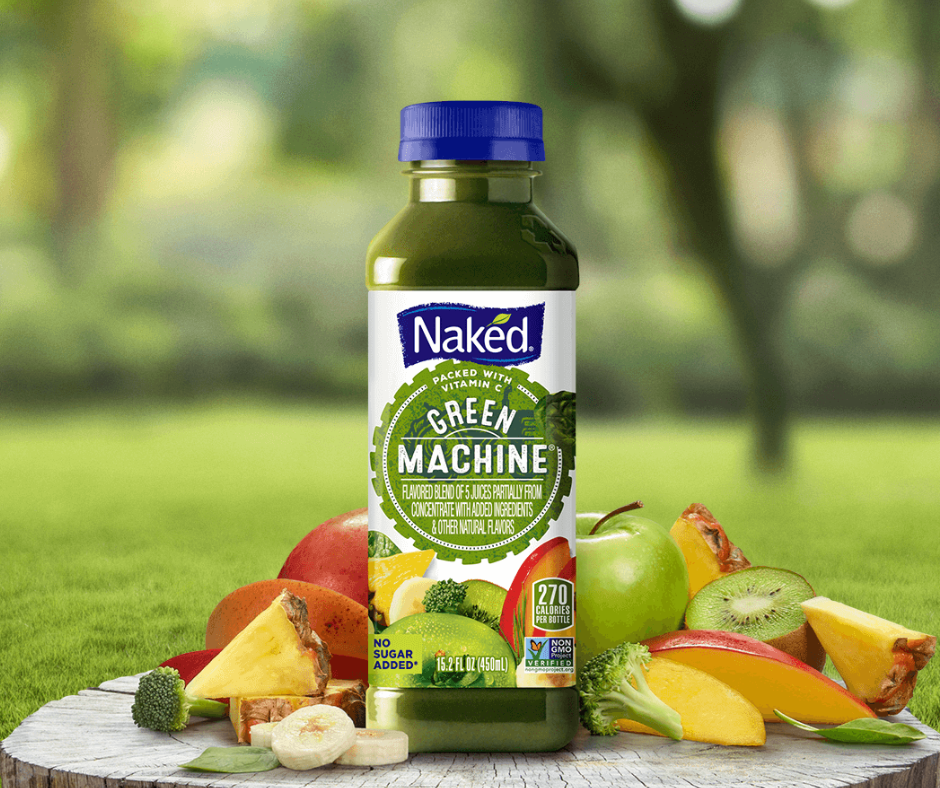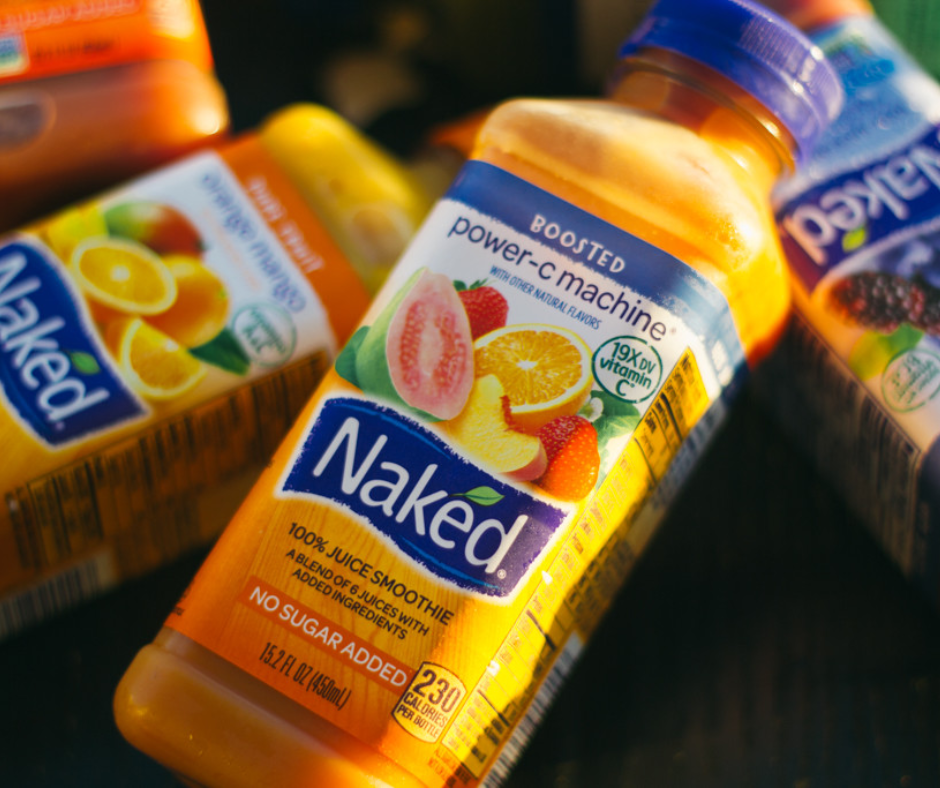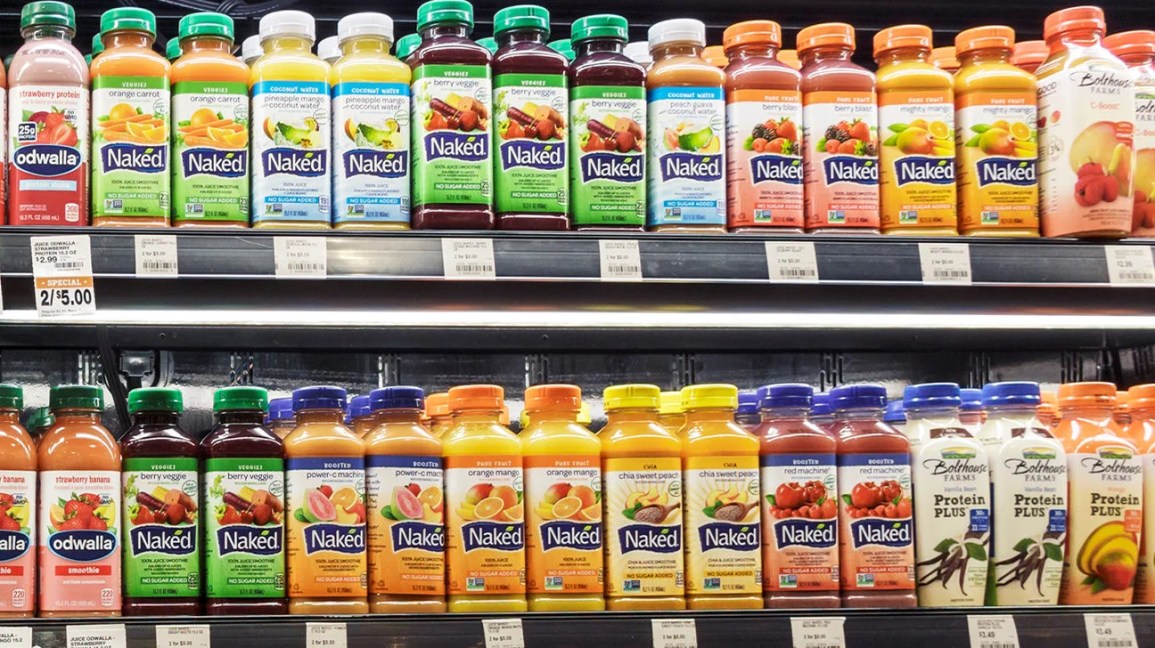Naked Juice contains fruits and vegetables, but also has high sugar content. It’s not as healthy as whole fruits due to lack of fiber.
Naked Juice is often perceived as a healthy beverage choice thanks to its branding and the use of natural ingredients. Despite the presence of essential vitamins and antioxidants naturally found in the fruits and vegetables used to create these juices, it’s important to note the relatively high levels of sugar and calories that could potentially offset their nutritional benefits.
Unlike whole fruits, Naked Juice lacks the dietary fiber that is crucial for digestive health. This fiber also helps in making one feel full, a feeling often absent when consuming fruit juices. As part of a balanced diet, Naked Juice can be included in moderation, but it should not be relied upon as a primary source of fruits or vegetables. It is important for consumers to be aware of these differences and enjoy these beverages as part of a varied and balanced diet.
Naked Juice: A Closer Look At The Brand
Naked Juice stands out in a sea of health-focused drinks. Their bottles are brimming with bold promises of pure fruit and veggie goodness. Amidst the wellness wave, they’ve claimed a solid spot on shelves. Their colourful labels catch eyes and suggest a healthy, no-nonsense beverage choice. Yet, we must peer behind the branding to understand what’s truly inside.
Ads pitch their drinks as “packed with nutrients”, while critics peek at the sugar content. This has sparked debates on whether Naked Juice is a health champion or a sugary pretender. As customers seek drinks that align with their wellness goals, Naked Juice’s position seems strong but invites inquiries and scrutiny into nutritional value.

What’s Inside The Bottle
Many people enjoy Naked Juice for its taste and quick nutrition. Main ingredients typically include a variety of fruits and vegetables. These might be apples, oranges, bananas, and carrots. On the label, ingredients are in order of amount.
The mix of fruits and veggies offers vitamins and minerals. Though, each bottle also packs a lot of sugar. This is natural sugar from fruits but can be too much. It’s key to check the label and see what’s really inside.
| Fruit/Veggie | Vitamin Content | Sugar Content (approx.) |
|---|---|---|
| Apple | Vitamin C | 19g per apple |
| Orange | Vitamin C | 12g per orange |
| Banana | Potassium | 14g per banana |
| Carrot | Vitamin A | 6g per carrot |
Remember that serving sizes count. Too much juice means too much sugar. Always balance with water and other foods for a healthy diet.
Health Versus Hype
The buzz around Naked Juice often paints it as a health elixir. Yet, a closer look at its sugar content raises questions. A single bottle can contain more sugar than recommended for the entire day. This sweetness comes from the fruit itself, not added sugars. Still, the impact on blood sugar levels can be significant. Nutrition experts suggest moderation, reminding us that whole fruits are a healthier choice. They give us essential fiber often missing in juice form.

Pros And Cons Of Consuming Naked Juice
Potential Health Benefits: Drinking Naked Juice can offer vitamins. It’s filled with fruits and vegetables. This may boost your vitamin intake quickly. Some people find it easy to get their “five-a-day” through these juices. Fiber is lower than whole fruits, but some juices have added nutrients like vitamin C.
Possible Drawbacks to Consider: Despite its healthy image, Naked Juice may have downsides. The sugar content is high, similar to soft drinks. This can lead to weight gain and blood sugar spikes. It lacks the fiber found in whole fruits. Always check for added ingredients or preservatives.
Comparative Analysis With Whole Fruits And Other Beverages
Naked Juice and whole fruits are different. Naked Juice is a brand of smoothies and fruit juices. Whole fruits are just fruits with skin, seeds and all inside. The juice saves you time. You don’t need to peel or cut it. But, juices lack fibers found in fruits.
Fibers are important for your body. They help you feel full and improve digestion. The juice has more sugar in one bottle than one fruit. This could be bad for kids. Whole fruits have vitamins and minerals in a natural way. They are better than juice for a healthy snack.
Compared to other drinks, like soda, Naked Juice is healthier. Soda has lots of sugar and no nutrients. So, Naked Juice is a better choice than soda.

Making Informed Choices
Understanding Naked Juice requires reading labels closely. Serving sizes are key. Each bottle might have more than one serving. The label shows nutritional content per serving. This includes sugars, vitamins, and calories. Check these details to decide if it fits your diet.
Enjoying Naked Juice as part of a balanced diet is smart. Balance means eating many different foods. Fruits, vegetables, proteins, and grains are all important. Naked Juice can add vitamins. But remember, it’s not a complete meal. Eat other healthy foods too. This helps keep your body strong and happy.
Frequently Asked Questions On Is Naked Juice Healthy
What Is The Healthiest Juice?
The healthiest juice is typically fresh, homemade juice without added sugars. Examples include pure pomegranate, cherry, and vegetable juices, which are rich in nutrients and antioxidants.
Who Owns Naked Juice?
Naked Juice is owned by PepsiCo, a global food and beverage company. The acquisition took place in 2007, expanding PepsiCo’s health-conscious product portfolio.
What Nutrients Are Found In Naked Juice?
Naked Juice is rich in vitamins and minerals since it’s made from whole fruits and vegetables. Each variety offers different nutrients, but many contain high levels of vitamin C, potassium, and dietary fiber.
Does Naked Juice Contain Added Sugars?
Most Naked Juice flavors do not have added sugars. However, their natural sugar content is quite high due to the concentrated amounts of fruit juice used in their recipes.
Conclusion
Deciding on Naked Juice’s healthfulness requires balance. It’s rich in vitamins but also high in sugars. Consider your dietary goals and consult with a nutritionist. Moderation is key for integrating these juices into a healthy lifestyle. Opt for whole fruits where possible for added fiber benefits.

